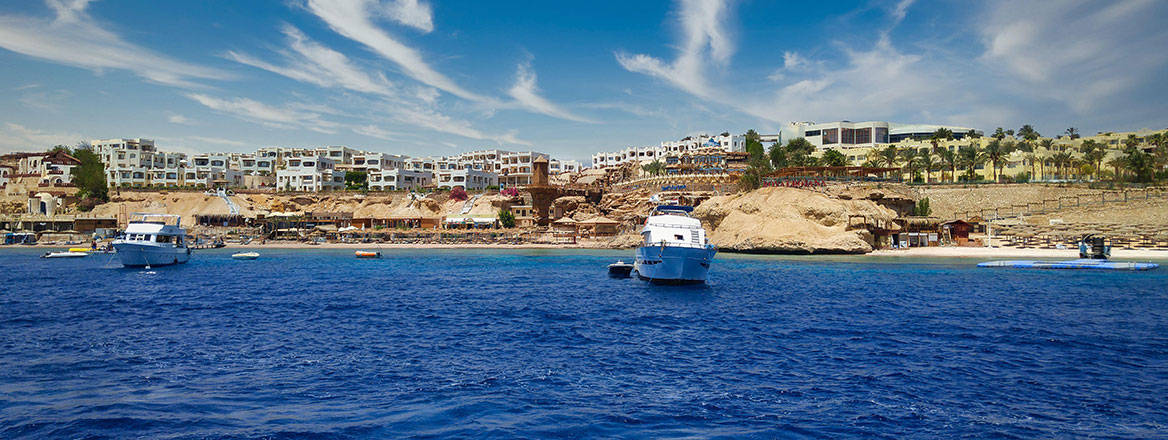From Glasgow to Sharm El-Sheikh: COP Goes to the Middle East
With the next two annual UN Climate Change Conferences taking place in Egypt and the United Arab Emirates, respectively, the Middle East and North Africa (MENA) moves into the spotlight of the global fight against climate change. Besides triggering a debate about greenwashing, this should draw attention to a region facing a dual challenge from both climate change and climate action.
The designation of Egypt and the UAE as hosts of, respectively, the 27th and 28th Conference of the Parties (COP) has been highly controversial. Critics have questioned if and how climate-focused civil society organisations from around the world will be able to participate in the conferences, pointing out that both Egypt and the UAE severely restrict their own populations’ freedoms of assembly and expression. Moreover, the governments of Egypt and the UAE have been accused of greenwashing – seeking to use meetings that are usually attended by dozens of world leaders to bolster their international reputation, while not doing enough to actually contribute to the battle against climate change.
The Egyptian government has made several public climate-related commitments, including to improve public transport systems and to combat air pollution in Cairo. It has also issued the MENA’s first sovereign green bond, raising some $750 million to invest in green development projects. Yet, to date, Egypt has not announced a net-zero target. It continues to rank second for emissions among African countries, and is responsible for a third of total fossil gas consumption in Africa. In fact, Egypt is currently working to become a major natural gas producer – both to cover domestic energy needs and to generate export revenues.
The UAE does have a net-zero target – 2050 – and a raft of climate and clean energy-related strategies. Abu Dhabi hosts the International Renewable Energy Agency; the UAE leads the MENA in renewable energy generation; and the country is likely to become the region’s first industrial-scale producer and exporter of green hydrogen. At the same time, however, the UAE is still the world’s seventh largest oil producer, and it has ambitious plans to significantly increase its production capacity in the coming years. Moreover, the UAE ranks among the countries with the highest per-capita emissions – not just in the MENA, but in the world.
Climate action is set to upend the very foundation of the MENA’s political economy and could signal the wholesale transformation of its geopolitics
For these and many other reasons, the debate about whether Egypt and the UAE are deserving or appropriate hosts of COP27 and COP28 will continue. However, bringing the next two global climate summits to the Middle East can also help draw attention to the enormous challenges the region faces in a world that is both warming and – hopefully – decarbonising.
The implications of climate change are already very much felt in the MENA. Multi-year, perhaps permanent droughts have become the norm for countries across the region. Every summer, temperatures climb to new record highs, raising real questions about whether some parts of the region could become too hot for humans to inhabit without having access to air conditioning. Meanwhile, extreme weather events are also becoming more common, be it dust storms in Iraq or floods caused by torrential rainfall in the UAE. In the medium to long term, water scarcity and rising sea levels pose potentially existential threats to states, both rich and poor.
Yet, in the meantime, climate action – specifically, the decarbonisation of the world economy – is set to upend the very foundation of the MENA’s political economy and could signal the wholesale transformation of its geopolitics. Few regions of the world have been as defined by hydrocarbons as the MENA. The discovery, production and export of oil (and later also natural gas) has shaped the region’s internal dynamics for the past century, gradually shifting its political and economic centre of gravity from historical centres like Beirut, Cairo and Damascus towards the Gulf monarchies in Abu Dhabi, Doha and Riyadh. Gaining access to MENA oil and gas, and ensuring its free flow onto international markets, has been one of the main reasons for global powers to intervene in and engage with the region. Consequently, it stands to reason that if the world’s demand for oil and gas shaped the MENA as we know it today, the world’s turn away from fossil fuels will surely shape the region’s future – the current European scramble for non-Russian hydrocarbons notwithstanding.
Governments in the UK, Europe, the US and across the world have an interest in working with and supporting MENA countries – individually and collectively – to navigate this dual challenge. Not only is the battle against climate change a global one that can only be fought effectively if all countries and regions are onboard, but the instability both climate change and climate action could fuel in the MENA will inevitably impact the national security of states far beyond the region.
Finding a path to sustainable economic development that is compatible with global decarbonisation objectives cannot be left to countries like Egypt alone; it must be a task for everyone
In this context, the two COP hosts – Egypt and the UAE – represent two different ends of the spectrum of countries, both in the MENA and the Global South, when it comes to the struggle against climate change. As a small, highly developed and extremely wealthy country, the UAE can be highly dynamic. Like other countries in similar positions – some of its fellow Gulf monarchies, for example – it faces the challenge of how to diversify its economy and reduce its emissions without compromising its socioeconomic stability. But it also has the means to make big bets on new technologies and to help other countries across the region develop more sustainably through targeted investments – both by itself and in partnership with Western countries and international organisations.
Egypt, on the other hand – together with many others in the region – has a lot less room for manoeuvre. To maintain political and socioeconomic stability, the government in Cairo must deliver economic development to generate enough services and opportunities for a huge and rapidly growing population. The only existing models for how to tackle such a challenge – followed by countries around the world for centuries – are literally fuelled by fossil fuels. Finding a path to sustainable economic development that is compatible with global decarbonisation objectives cannot be left to countries like Egypt alone; it must be a task for everyone.
When Egyptian President Abdul Fatah Al-Sisi welcomes dignitaries from around the world in Sharm El-Sheikh next month, much of the media coverage will inevitably focus on whether he really cares about climate change, or if he just hopes to burnish his credentials as an international statesman and boost Egypt’s tourism industry. Yet, this should not distract from the fundamental questions about what climate change and climate action mean for a region like the MENA. If the UK and its European partners are serious about their pledges to lead the global struggle against climate change, they must be involved in trying to find the answers.
The views expressed in this Commentary are the authors’, and do not represent those of RUSI or any other institution.
Have an idea for a Commentary you’d like to write for us? Send a short pitch to commentaries@rusi.org and we’ll get back to you if it fits into our research interests. Full guidelines for contributors can be found here.
WRITTEN BY
Dr Tobias Borck
RUSI Senior Associate Fellow, RUSI International
Oisín Harris
- Jim McLeanMedia Relations Manager+44 (0)7917 373 069JimMc@rusi.org


